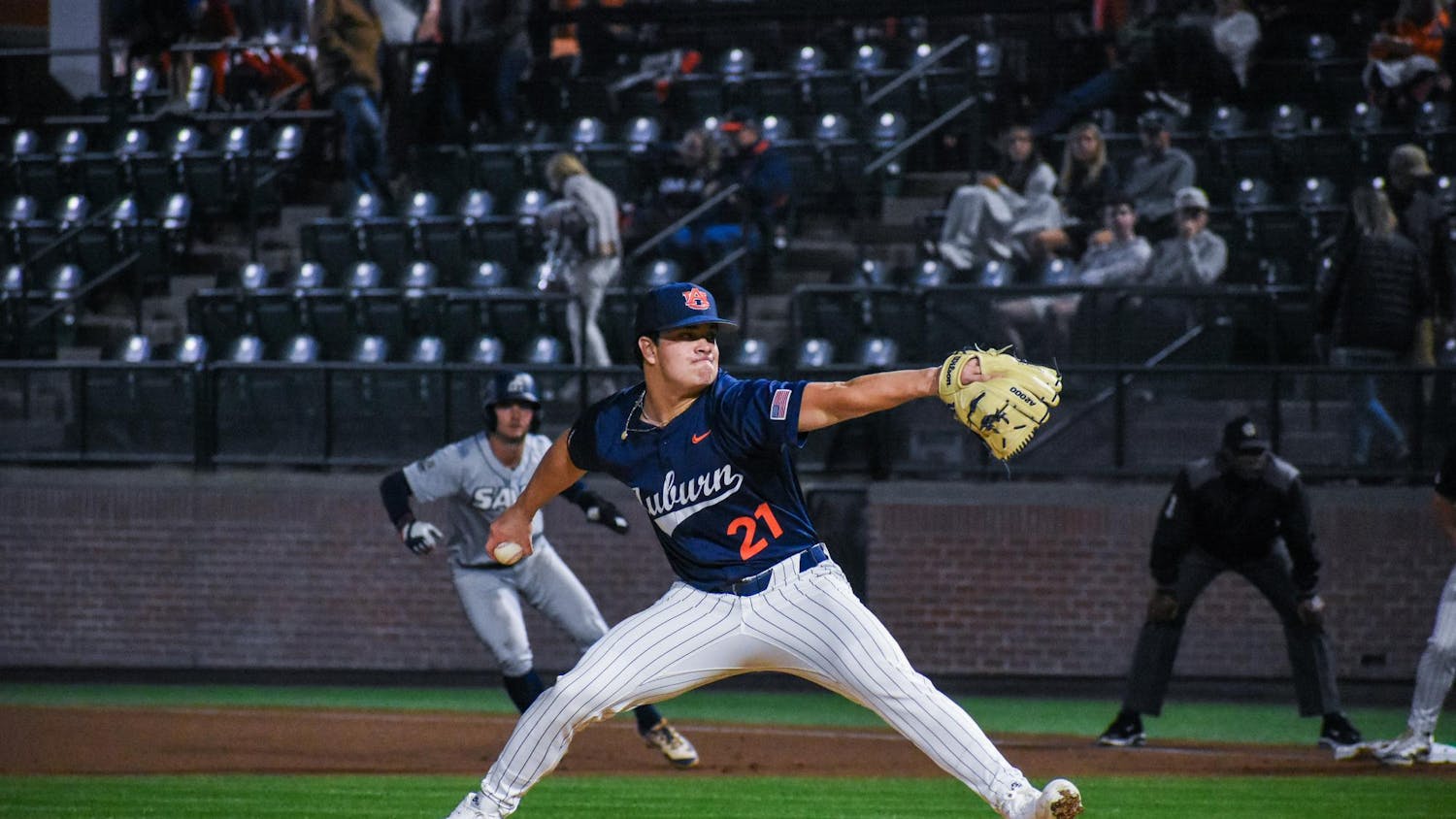The Voting Rights Act was signed into law on Aug. 6, 1965. Fifty years later to the day, NAACP protesters are marching through Auburn, continuing to speak out against the issues the African American community still faces.
The NAACP's America's Journey for Justice march arrived in Auburn at 10:30 a.m. on their 40-day journey to Washington D.C.
The march is a peaceful protest advocating for economic and educational equity, voter rights, reform to the criminal justice system, and an end to racial profiling and police brutality.
The group has marched more than 100 miles from their starting point in Selma, where Martin Luther King Jr. focused his voter registration campaign during the Civil Rights Movement and the sight of Bloody Sunday.
"We're out here marching because our lives, our votes, our schools really matter to us," said Sean Dugar, NAACP western regional field director. "We're here to ensure that our presence is felt in each city, in each state, especially here in the South, where these issues are so pertinent."
The Oakland, California, native has been monitoring cases of police brutality over the past five months. According to his own research, 31 African Americans were killed by police officers in the month of July.
"That's on par with what we continue to see month to month," Dugar said. "So, to me, now is the perfect time to ensure that the NAACP is leading the movement, leading the charge to get Congress to pass the End Racial Profiling Act and other legislation to ensure that officers are held accountable."
A federal court of appeals found Texas's voter ID law violated the Voting Rights Act by having discriminatory impact. Dugar called this a "small victory."
"We want to make sure this is universal," Dugar said. "We want to see these victories in every state that have voter ID's or that are stopping young people and people of color from getting to the polls."
The Texas law required voters to bring a government-issued voter ID to the polls such as a driver's license, United States passport, concealed-carry handgun license or an election identification certificate.
"You can use your open-carry license to register and vote, but you cannot use a student ID from a state school, which makes no sense to me," Dugar said. "Anyone who's ever been to a DMV knows it's an all-day process ... a lot of young people, a lot of elderly people, a lot of people of color, minimum wage workers cannot afford to take off a whole day to go get a driver's license or ID so that they can then go and vote."
While the march started with approximately 200 people in Selma, there are only 100 people who have come as far as Auburn, according to Dugar.
Many of the marchers will not actually march the full 860 miles it takes to get from Selma to Washington D.C. Because of temperatures rising above 100 degrees, fresh marchers take the place of tired ones and continue where they left off, allow them time to recover.
Phillip Dage of Detroit is a part of the sprint team for the march. The group is scheduled to be in Washington D.C. by 7 p.m. on Sept. 11. When the march falls behind schedule, the sprint team makes up for lost time.
"When I heard about the NAACP starting in Selma and going to D.C., I got really excited, because it's a much bigger walk and it's something that's going to encompass more miles, more people, more issues," Dage said.
Quincy Bates, southwestern regional organizer, said he has been preparing for the march for months by walking at home and drinking water. He has walked 80 of the 100 miles from Selma to Auburn, and he said he plans to stay with the march all the way to Washington D.C.
"This gives me an opportunity to participate and march for my values, march for what I believe in, march for what's most important to me, which is voting rights, better quality schools, quality healthcare and just a better quality of life for everyone," Bates said.
Marchers will have approximately 750 miles to go from Auburn until they reach Washington D.C., where the NAACP will hold a rally and advocacy day.
Visit naacp.org for more information. Use #JusticeSummer to see updates on the march via Twitter.
Do you like this story? The Plainsman doesn't accept money from tuition or student fees, and we don't charge a subscription fee. But you can donate to support The Plainsman.




